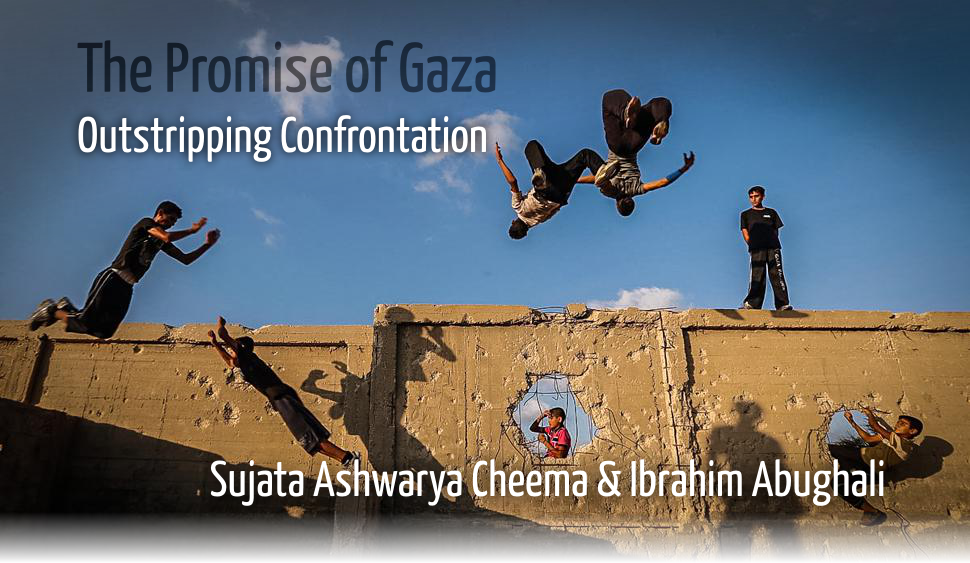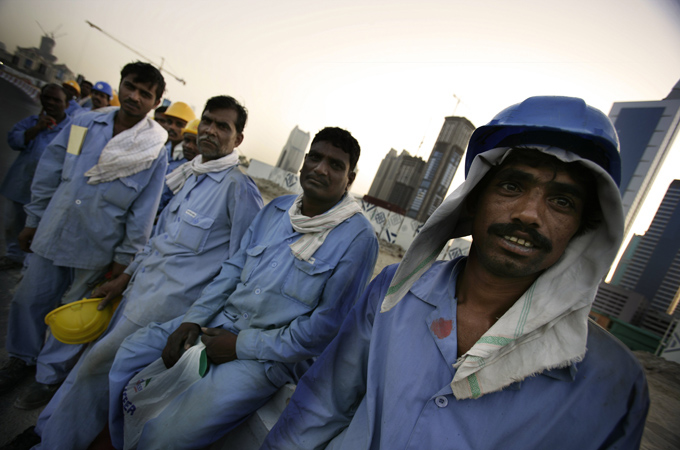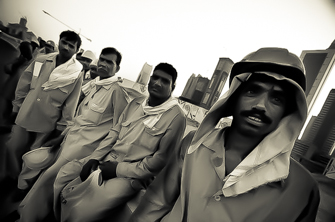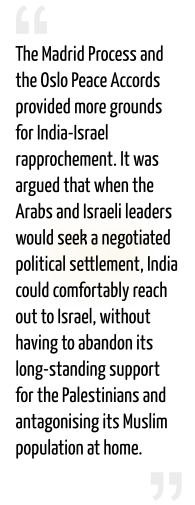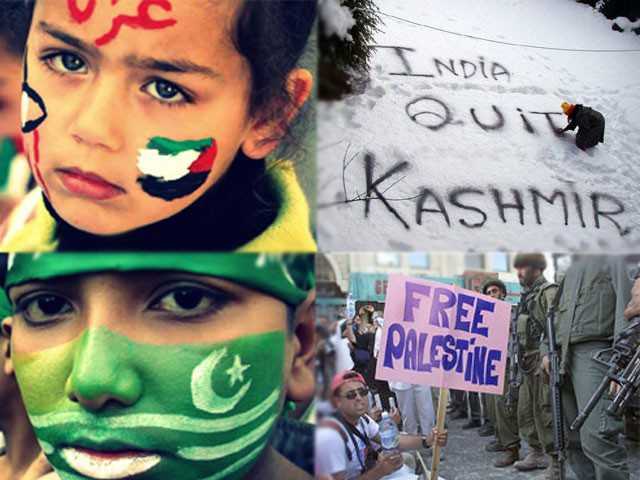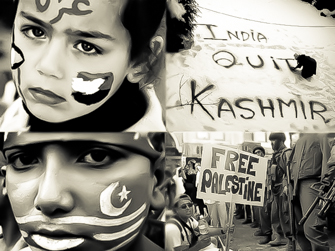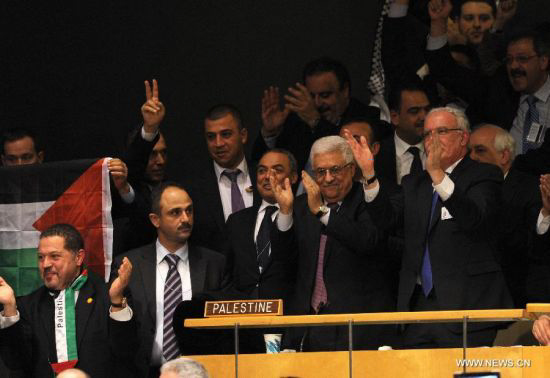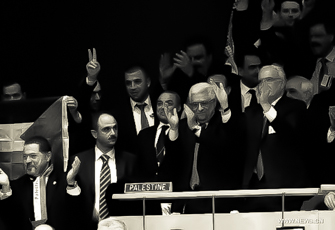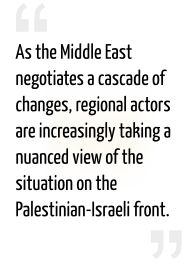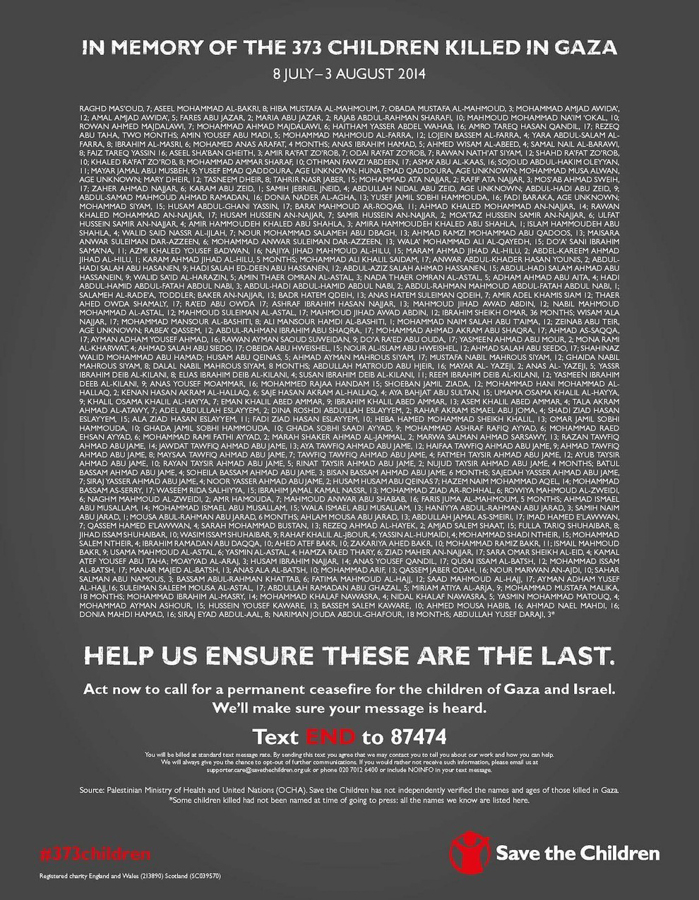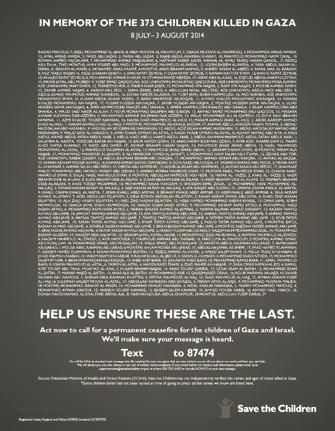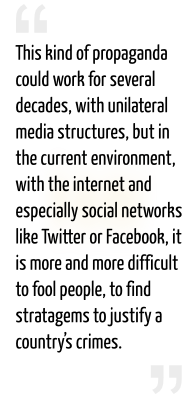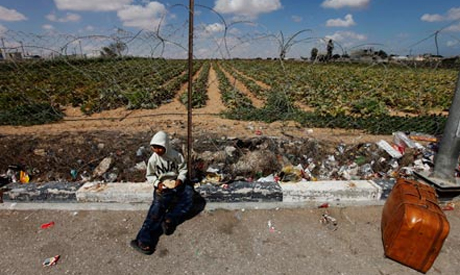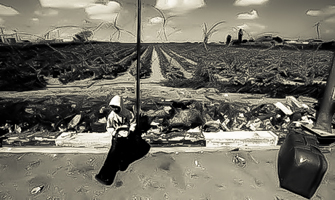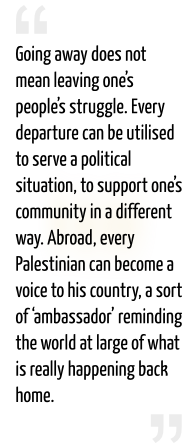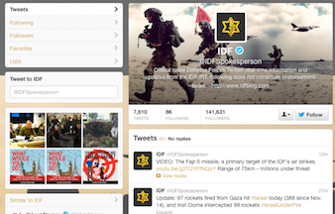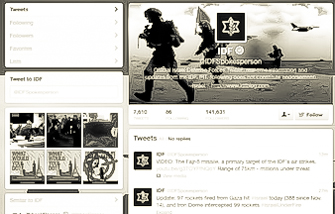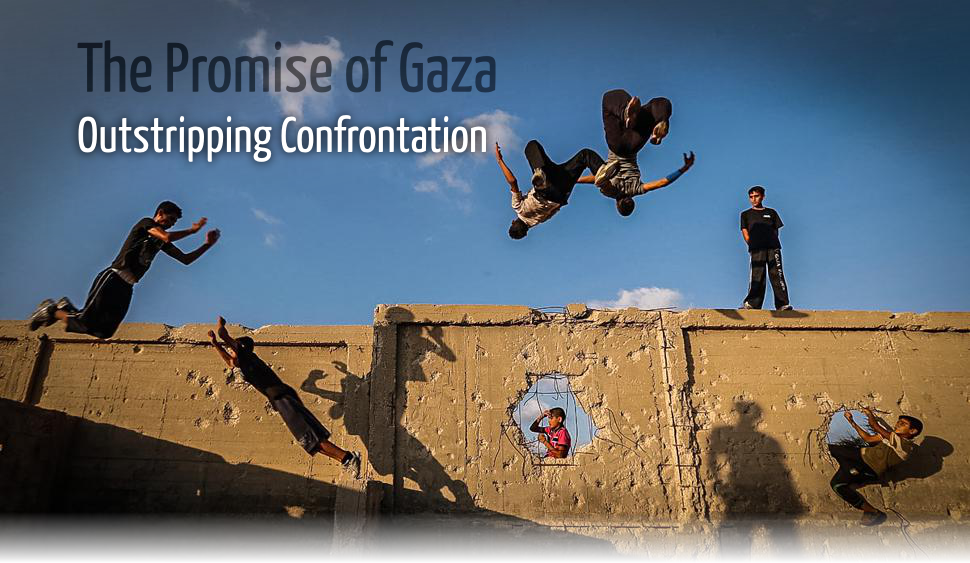
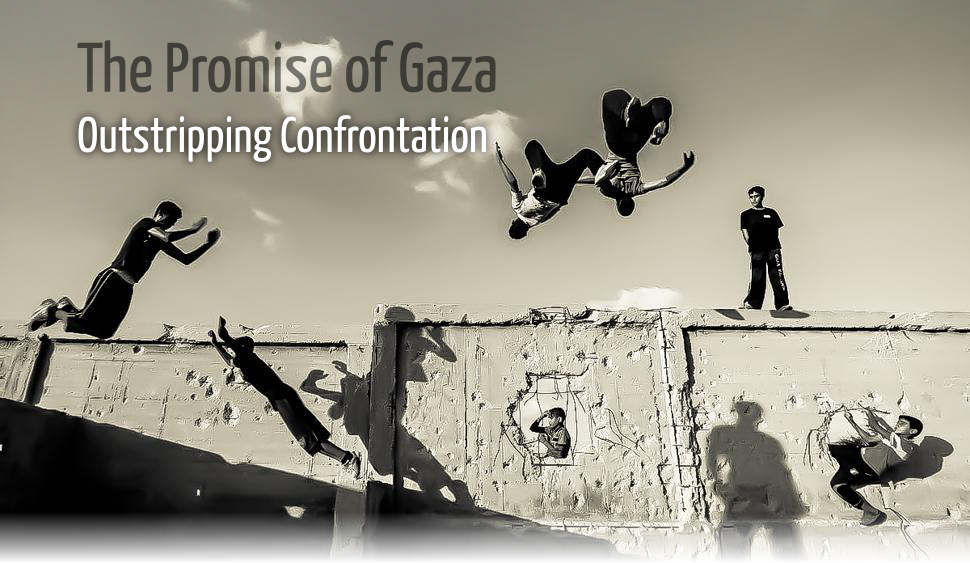
8 August 2014The world order was far from being deeply shaken, in November 2012, when the United Nations recognised Palestine as a non-member observer state. But, with the support of a large majority, the vote became the symbol of a turning historical point: a global, almost exhaustive and irrevocable recognition of Palestine’s right to self-determination. Alas, that would become an interstice of optimism, before the recurrence of attacks and their correlated resolute resistance. A wave of diplomatic and public activism has been pushing towards the peaceful ending of the decades-long fights, but the repeated interruptions of the cease-fires reveal how even an overall consensus struggles in bridging the gap between ideal principle and pragmatic compromise. Indeed, how can states and citizens partake in the actual making of the universal project of peace? If Gaza is the emblem of one global promise, it is this one: the world’s creative imagination to find alternative means of translating principles. This week, LILA Inter-actions invites Sujata Ashwarya Cheema, International Relations specialist, who carefully traces the history of India’s rapport with Israel, and the profound rhizomes that explain the positions of current governments. Computer Sciences researcher and native Palestinian Ibrahim Abughali reflects on the global dimension of the conflict via new technological possibilities, forming the means of strenuous subversions, against the backdrop of what remains the everyday reminder of the reign of force. |
Hold the cursor on the illustrations to display animations and descriptions.
Negotiating the FactorsSujata Ashwarya Cheema |
Being HeardIbrahim Abughali |
||||||||
Requested file could not be found (error code 404). Verify the file URL specified in the shortcode. |
Listen |
Listen |
Requested file could not be found (error code 404). Verify the file URL specified in the shortcode. |
||||||
|
While India could never play a truly active role in the diplomacy surrounding the struggle for Palestinian statehood, the country had been nonetheless known for decades for its categorical support to the Palestinian cause. That stand has ebbed gradually, since the establishment of full diplomatic relations with Israel in 1992. India’s ties with Israel have burgeoned in several areas, most notably in the defence sector. India’s dependence on Israeli arms supplies, which amounts to an estimated $10 billion over the last decade, makes Israel an indispensible partner in India’s national security strategy. Moderation on the Palestinian issue has been a logical corollary to this fact. Foreign policy decision-making is a complex process that requires state leaders to contend with a variety of diplomatic and military factors, morality being just one parameter. In fact, India took a moral stand in opposing Israel in the context of the Palestinian displacement and dispossession in 1948. However, it was not devoid of other rational-instrumental imperatives, rooted in some of the Indian state’s interests in that historical period. A large indigenous Muslim populace – traumatised by the partition of the subcontinent and subsequent displacement – identified very closely with the Palestinian nakba (catastrophe). In this context, New Delhi viewed any positive gesture towards Israel as harmful to internal peace and harmony. Moreover, New Delhi’s anxiety about Kashmir and its preoccupation with winning allies in the Muslim world (at the expense of Pakistan) added to India’s distance from Tel Aviv. The need for Persian Gulf oil and the remittances of a large expatriate population in the Arab countries pressed India to continue making friendly overtures to Arabs in opposition to Israel. The strong Indian presence
With the end of the Cold War in the early 1990s, India was once again confronted with a new set of global and domestic challenges, which informed its Palestine policy and the correlated position towards Israel. As the comfort of assured military supply and strategic support from Russia dissipated, India was left with precious little but to engage with the lone superpower and look for new strategic relationships. Israel, as the USA’s strongest ally in the region, benefitted from this vision, and soon many saw a road to Washington through Tel Aviv. The Madrid Process and the Oslo Peace Accords provided more grounds for India-Israel rapprochement. It was argued that when the Arabs and Israeli leaders would seek a negotiated political settlement, India could comfortably reach out to Israel, without having to abandon its long-standing support for the Palestinians and antagonising its Muslim population at home. India was also becoming increasingly wary of repeated pro-Pakistan resolutions on Kashmir by the Organisation of the Islamic Cooperation (OIC) countries, which encouraged a re-evaluation of its Israel policy. In the early 1990s, security emerged as a crucial issue for India’s domestic and foreign policies. The rise of militancy and terrorism in the neighbourhood would have telling impact on India’s domestic security, as evidenced in the 1993 Mumbai blasts. Both the Congress and BJP-led governments have supported strong relations with Israel – despite their divergent political moorings – mainly because of shared concerns about Islamic extremism in India’s neighbourhood. The perceived dangers from Islamic extremism were so great that it seemed worth risking domestic Muslim opposition. Palestine and Kashmir are indirectly connected With the establishment of diplomatic ties, bilateral relations between India and Israel have witnessed rapid expansion in the fields of trade, defence and military, science and technology, and security-related issues. Security and defence relations were quick to grow as Indian army officials had already developed professional appreciation for Israel’s military expertise through intermittent contact in the earlier decades. Therefore, India’s Israel policy reflected the normative, standard-setting core of realist foreign policy, namely national interest and state security. India, in the same realist tradition that also calls for ethics and values in a responsible foreign policy, has not lost sight of the struggle of the Palestinian people for self-determination. India was among the countries that sponsored the UNGA resolution in November 2012, granting non-member observer state status to the Palestinians and voting for a UN Human Rights Council resolution to begin an investigation into Israel’s July 2014 offensive on Gaza. In 2012, India supported India has gradually delinked support for the Palestinian issue from its bilateral relations with Israel. This move, expected with the development in relations with Israel, has also helped India to maintain its traditional support for the Palestinians. While India continues to expand the scope of cooperation with Israel, it has also continued to vote for the Palestinian cause in the international forums. As a matter of fact, with only two exceptions – the 1991 UN vote repealing the 1975 Zionism equals racism resolution and the Durban conference of 2001 – there has been no marked difference in India’s voting pattern on the issues related to the Palestinian-Israeli conflict since 1992. It has also helped that the Arab countries – India’s vital trade and energy partners – displayed pragmatism and maintained a diplomatic reserve on India’s Israel policy, despite Pakistan’s efforts to discredit India in the region.
Much has been made of India’s failure to ‘condemn’ Israel on its Gaza attacks of November 2012 and July 2014. That, again has a background, and it merely reinforces the fact that states make decisions based on several stimuli. The Palestinian struggle has been overshadowed by the disjunction between Hamas and Fatah – Hamas’ links with Iran and its consequent unpopularity in the Arab world, and Fatah’s own quiet acquiescence to the occupation in the West Bank. As the Middle East negotiates a cascade of changes, regional actors are increasingly taking a nuanced view of the situation on the Palestinian-Israeli front. The Ministry of External Affairs’ statement on Operation Protective Edge, the July 2014 Israeli attack on Gaza, presenting India’s concern over violence and provocation on both sides of the conflict, is very much in keeping with our conception of non-violence. This is a conception that does not see the world in terms of rigid and permanent binary of good and evil, but as an arena where negotiations, reformation and conciliation take place. |
Through the years, the level of complexity of the Israeli-Palestinian conflict has reached unprecedented heights. But, being a Palestinian myself, a number of aspects of the recent attacks strike me. First of all, one obviously feels a sense of shame at humanity’s glaring failure: everyday, many civilians are killed, without any reason, and in the past month, around 400 children passed away because of the attacks. And the tragedy is that, where I am from, this has been happening every two or three years, for too many decades already. British newspapers have published one page covers
The world is witnessing these crimes, and yet its authors still find support. Everyday, more places and wider populations are targeted, yet the USA increases its backing of Israel without any hesitation. I believe that this will backfire, and cost the USA a lot, as this movement is fuelled on a denial of the voices of American citizens, who can read the facts. Since 1947 and perhaps even before, Israel has been manipulating the facts in an attempt to control western media. The accusation towards the Hamas, to name the most famous example, is clearly absurd and partial: the Hamas emerged in 1987, while Israeli crimes go back long before, since 1947… It is not a sufficient justification to blame the Hamas: Israel is simply not ready to give Palestinians their rights. This kind of propaganda could work for several decades, with unilateral media structures, but in the current environment, with the internet and especially social networks like Twitter or Facebook, it is more and more difficult to fool people, to find stratagems to justify a country’s crimes. This helps Palestinians getting more solidarity from around the world, from governments, communities and individuals. The border politics of Rafah: The Palestinian genocide also revealed many layers of today’s reality in the Arab countries. In the case of the Rafah border for instance, connecting Gaza and Egypt, we can notice how suspicious countries have become towards each other. And this is indeed an insightful revelation. Many Arab countries have been said to claim their support for freedom in the whole region. The Arab spring became the symbol of a region in transition. Various revolutionary movements came to the front and attempted to bring a real change in Arab countries. One may also think of the support of many Arab countries in last year’s events in Syria. But, all throughout, most of those countries have remained quiet regarding Gaza. In fact, those events are simultaneous with the rise of various suspicious conservative Islamic groups, which hardly even blink for what is happening in Gaza. Presently, this is clearly the first and most striking problem for any Muslim person. The oppression of Gaza’s population by Israel has a long history. Every year is worse then the previous. Communities have been trapped in small areas by our neighbour, and now you can hear many people saying they are just ready to die. Even kids would rather hope for a better life elsewhere, since everyone has been so disappointed, over and over again. How can a population make sense of such an unjust world? Israel, confidently, is still claiming that those communities are volunteer human shields. Obviously, the truth is the opposite: Israel kills innocents, bombs schools that had become shelters, targets hospitals and captures journalists. In the media, we hear that the Israeli troops send a warning call or ‘small’ rockets (!) before targeting houses… But what many people ignore, is that every single person living in Gaza has received warning calls or warning rockets to evacuate buildings immediately, but those calls are both random and purposeful – some are real warnings, while others are fake and aim at playing with the civilians of Gaza. This leaves the people deeply confused, wondering whether to die in their houses or outside…
This kind of life, this kind of heritage, of personal and familial history, has naturally affected my life very deeply. It is the kind of context that makes you change your priorities. It affects one’s life trajectory, one’s decisions – big life decisions just like everyday questions. All the time, I am led to confusion: what am I doing? Why am I doing it? Looking for better life conditions, for a bit of peace, but also seeking better education to forge a stronger future, many Palestinians leave the country for some time, and go study abroad. I have been one of them. But going away does not mean leaving one’s people’s struggle. Every departure can be utilised to serve a political situation, to support one’s community in a different way. Abroad, every Palestinian can become a voice to his country, a sort of ‘ambassador’ reminding the world at large of what is really happening back home. I believe all Palestinians share the same ideas, yet it takes different levels of expression and activism, according to the abilities of each person. The social media: new terrain As a student of Computer Sciences, I look at the world at large, and what is happening in Palestine in particular, through the lens of technologies, of the internet, of data management. The social media have become a new, online battlefield for ideas and causes. Israelis have created many fake accounts on Facebook and Twitter to publish their lies, but today the facts are easier of access, and such claims can be counter-proved more directly. I have personally received many friend requests from people who try to drag me away from the crimes and stop me from publishing the news I receive from Gaza. But soon they realise their tricks do not work, and they close their pages. However, as Palestinians living abroad, we are in contact with many people from around the world, thus indeed somehow we are also targeted, in a different way. Our assailants realise we have very important connections to the global public opinion, through the social networks. This possibility is an everyday inspiration for me: while some simply violate the rights of others, I believe that using any way to support oppressed people, to show the world’s reality to each and everyone, is a duty for every human. |
||||||||
|
Sujata Ashwarya Cheema is Assistant Professor in the Centre for West Asian Studies, Jamia Millia Islamia, New Delhi, specialising on India’s West Asia policy, politics and foreign policy as well as energy political economy and democratisation. She has worked as a researcher at the Rothberg International School, Hebrew University of Jerusalem, Maison des Sciences de l’Homme (MSH) & Centre d’Etudes et des Recherches Internationales (CERI), Paris, and the Faculty of World Studies, University of Tehran. Her publications include Civil Society, Democracy and State in West Asia (ed., 2010) and Essays on Iran and Israel: An Indian Perspective (2014).
|
Ibrahim Abughali is a researcher in Computer Sciences from central Gaza, Palestine. In 2008, he came to India to undertake a Master of Technology from Jawaharlal Nehru University. The degree was followed by his Ph.D. research work, which he shall complete by 2016. Ibrahim specialises in data mining.
|
||||||||
Disclaimers: The opinions expressed by the writers are their own. They do not represent their institutions’ view.
LILA Inter-actions will not be responsible for the views presented.
The images and the videos used are only intended to provide multiple perspectives on the fields under discussion.
Images and videos courtesy: Muhammed Salem | Al Jazeera | Pakistan Defence | Sina English | Save the Children | Arham Online | Computer World
Voices courtesy: Samuel Buchoul
Share this debate… |
… follow LILA… |
||||
